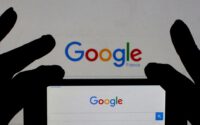Hollywood is terrified of AI stealing their jobs, study shows
As Hollywood anxiously awaits the outcome of the writer’s strike, showbiz insiders now have something else to worry about — AI taking over jobs.
In an exclusive survey published today in Variety, the Tinseltown rank-and-file revealed deep concern over the various ways generative artificial intelligence, or AI, will affect their “role, company, industry and broader cultural environment.”
And while only 36% of respondents were “very” or “somewhat concerned” with generative AI impacting their personal job security in the next two to three years, more global concerns appear to have the majority gritting their teeth with worry.
A majority of 48% were worried about generative AI being “used for intellectual property infringement,” with 43% “somewhat concerned” about job losses this might cause. The same number, 43%, believe that AI will cause quality and creativity to suffer significantly.
For context, the entertainment workers in the United States that were surveyed in late June have a high awareness of generative AI —87% were aware of tools like ChatGPT and Midjourney — with 65% claiming to know some of the technology.


The rise of generative AI has surged as union contracts and negotiations have dwindled.
“The WGA, DGA and SAG-AFTRA each respectively demand new contract language that provides clarity, protections and restrictions on the use of generative AI regarding employment terms with writers, directors and actors,” Variety noted in its report.
While generative AI is still in its fledging state, respondents were asked to “select all that apply” from a list of creative tasks it may be able to accomplish in the next two to three years. The top response was creating realistic sound effects for film, TV or games,” at 58%. In theory, AI is currently capable of such a task.


The task the least lightly to be taken over by the machines? Writing, according to respondents — only 29% of them thought AI had a chance of turning out a decent script for film or television.
Some survey participants said they were anticipating the ways generative AI could help them do their jobs better — for example, automating “rote or time-consuming manual VFX tasks to be able to deliver high-quality work faster.”
For others, the future is already here — 13% admitted they, their team or their company are currently using generative AI tools, with 17% revealing that they’re planning to implement them soon.
But the majority confessed to having no such ambitions, with 51% stating that they, their teams or their company “do not currently use generative AI and do not plan to do so.”


